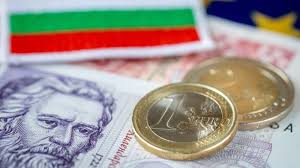Cooling inflation boosts Bulgaria’s chances of joining the euro in 2025

Sofia: Bulgaria’s annual inflation rate, which reached the eurozone average of 2.4% in April and fell below 3% for the first time since summer 2021, significantly increases the country’s chances of adopting the euro from 2025, the finance ministry told Euractiv Bulgaria.
Responding to a question from Euractiv Bulgaria, the authorities in Sofia are showing a strong sign of political will to join the Eurozone.
“According to preliminary assessments, there is a possibility that Bulgaria will fulfil the price stability criterion before the end of 2024. In this regard, the country intends to submit additional (convergent, b.a.) reports upon fulfilling the price criterion,” said Bulgaria’s finance ministry.
The ministry also confirmed to Euractiv Bulgaria that it will request an additional convergent report on Bulgaria’s readiness for the Eurozone in autumn this year.
The latest data from the National Statistical Institute (NSI) on inflation for the month of April confirm the country’s clear trend of decelerating inflation. The regular convergence report on Bulgaria’s readiness to adopt the euro is due in June 2024.
If the country fails to meet the inflation criterion in this report, Bulgaria can ask for another report three months later.
The latter could indeed give Bulgaria the green light to join the eurozone, as Bulgarian inflation is traditionally insignificant or negative during the summer months.
Bulgaria also meets the other key criteria for eurozone membership, with very low public debt – 23.1% of GDP – and a budget deficit well below 3%.
Brussels has also recently expressed its belief that Bulgaria can join the eurozone in 2025, with EU Economic Affairs Commissioner Paolo Gentiloni saying during a visit to Sofia that there is no difference in treatment when it comes to the eurozone accession process for Bulgaria and Croatia, pointing out that “the whole eurozone family is very happy about the possibility that sometime next year the 21st member, namely Bulgaria, will join”.
The European Commission predicts that Bulgaria’s GDP will grow by 1.9% in 2024 and 2.9% in 2025, with deficits of 2.8% and 2.9% this year and the next.
“Inflation is the only question, and if we don’t react, it will be by a negligible margin,” says financial expert Rumen Galabinov, adding that macroeconomic indicators point to Bulgaria meeting all the criteria for eurozone membership by mid-2024.





